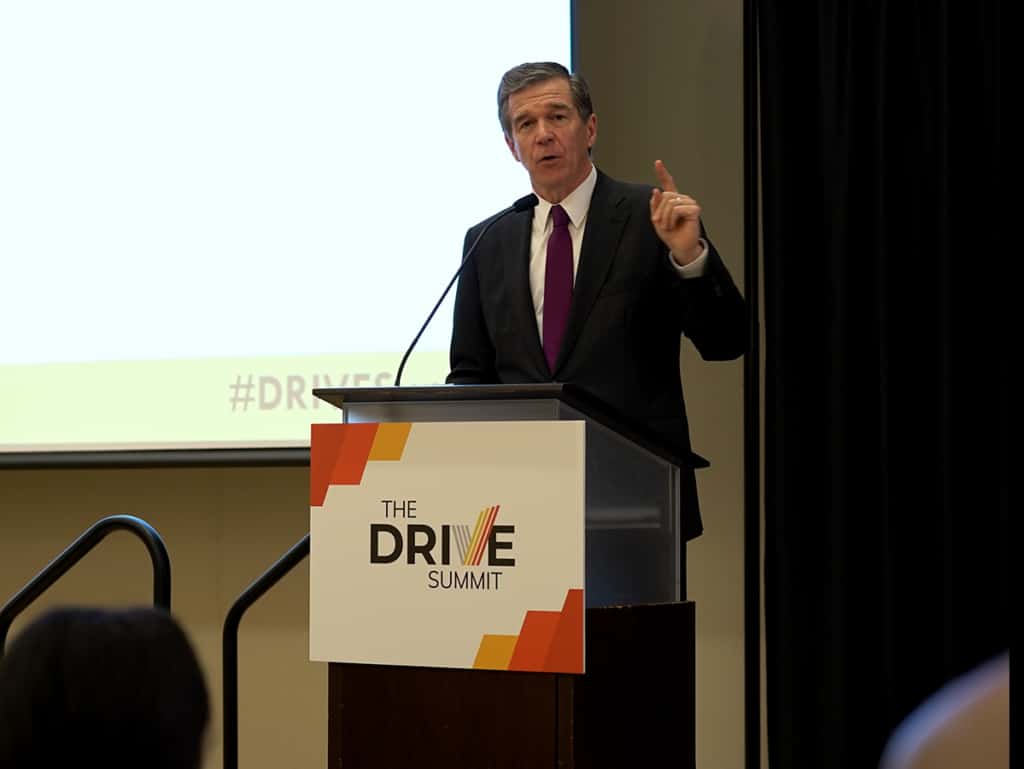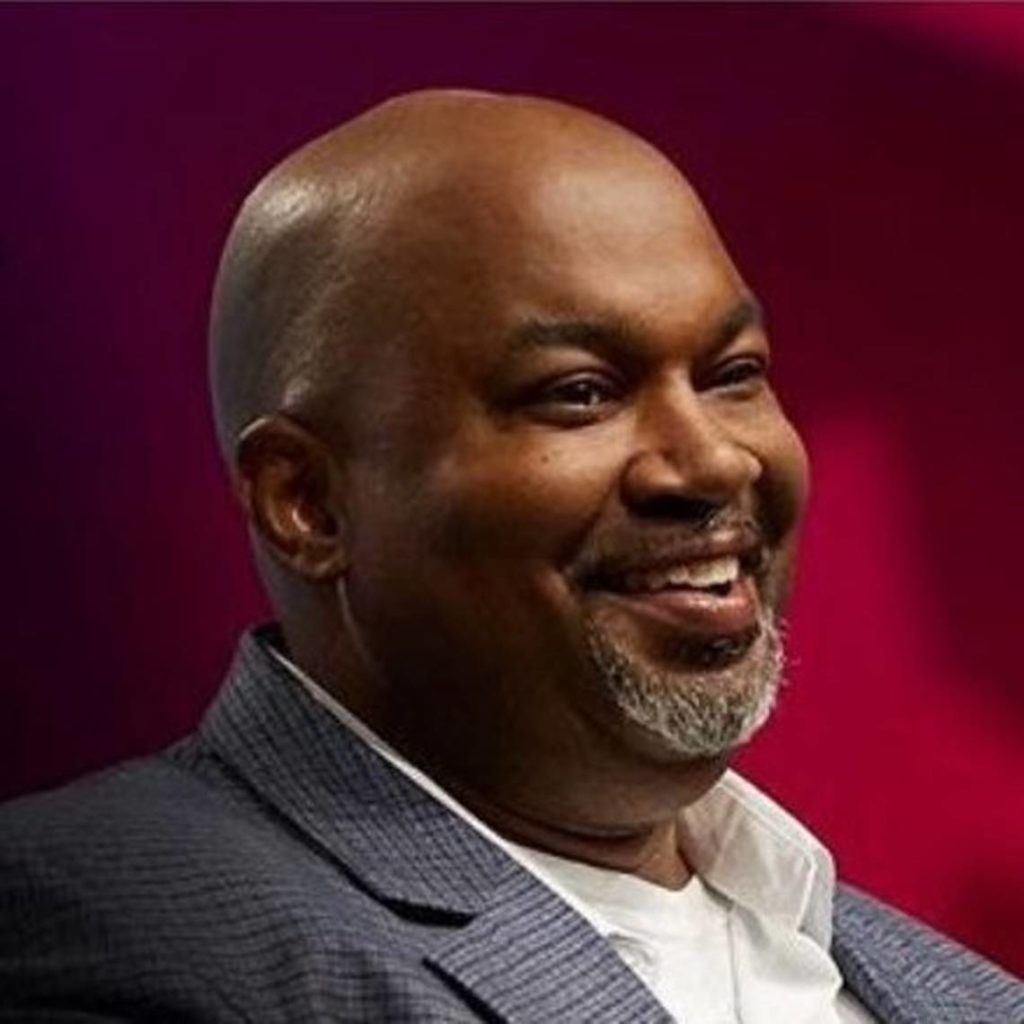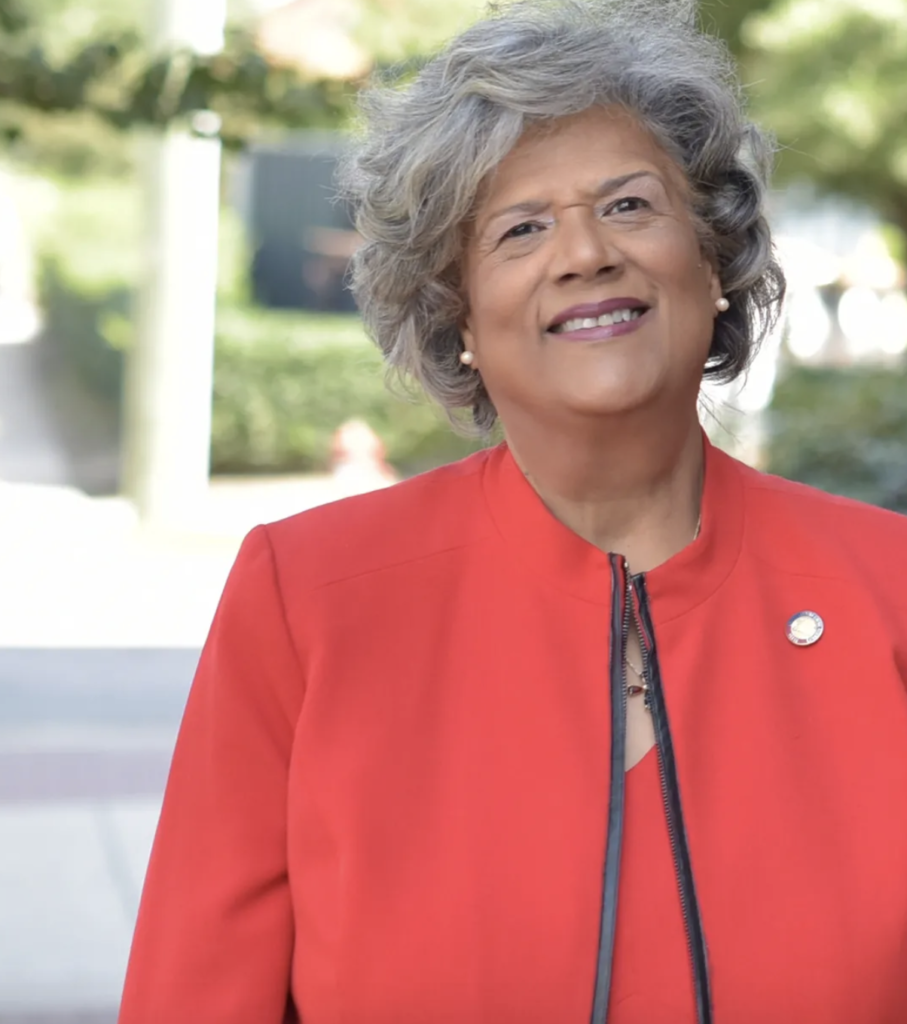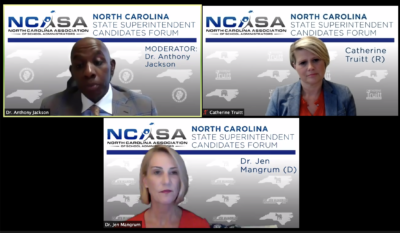
Oct. 15 marks the start of early voting in North Carolina, and voters will turn out to vote for everything from president of the United States to North Carolina agricultural commissioner.
But as an organization focused on education, there are three races that we are following most closely: governor, lieutenant governor, and state superintendent of public instruction.
Below, we break down the positions, what powers they contain, some basic information about the candidates, and links to various media where you can hear for yourself the candidates’ takes on a variety of issues.
To find your polling place, here is the official website from the State Board of Elections. For more on how to vote, view the article below.
Governor
At NC.gov, the governor is described as North Carolina’s chief executive.
All of the following agencies report to him: “Administration, Commerce, Environmental Quality, Health and Human Services, Information Technology, Natural and Cultural Resources, Military and Veteran Affairs, Public Safety, Revenue, and Transportation.”
The website goes on to describe him as: “serving as commander in chief of the state militia; chairing the Council of State; convening special legislative sessions; executing the laws of the state; granting pardons, commuting prison sentences, and issuing extradition warrants; joining interstate compacts; reorganizing and consolidating state agencies under his or her direct control; exercising final authority over state expenditures and administering funds and loans from the federal government; and delivering the annual state-of-the-state address to a joint session of the legislature.”
The governor also has the power of the pen. He can sign legislation passed by the General Assembly into law, or he can veto legislation.
This can be particularly important when it comes to the state budget, which largely sets out the state’s priorities when it comes to any number of issues, including education. Education receives the single largest share of the state budget.
The governor generally offers his own budget which the General Assembly takes into account as the two chambers are formulating their own spending plans. Then, after the legislature passes a budget, the governor can sign off or veto.
Below, we give more specific information about the two candidates for governor.
Democrat Roy Cooper (Incumbent)

Who is he?
Cooper is a Democrat who first won election as governor in 2016. Prior to that, he had served as attorney general of the state since 2001. Read more of the bio from Cooper’s website here.
Basic information
Website: https://roycooper.com
Email: info@roycooper.com
Twitter: @RoyCooperNC
Money raised
Second quarter 2020: $5,959,563.98
So far this election: $19,300,365.64
Republican Dan Forest

Who is he?
Forest, an architect, is a Republican who has served as lieutenant governor of North Carolina since 2013. Read more about him from his bio on his website.
Basic information
Website: https://danforest.com
Email: danforest.nationbuilder.com/contact
Twitter: @DanForestNC
Money raised:
Second quarter 2020: $2,414,068.80
So far this election: $6,906,086.29
Where can you learn more?
Forest and Cooper participated in one debate that aired October 14 on WRAL-TV.
You can watch it at the link below:
Pandemic dominates debate between Cooper, Forest
Some of Forest and Cooper’s views have been laid out in various media, including:
The News & Observer
Additionally, the candidates talked about education at the following forum:
Gubernatorial, state superintendent candidates talk education
Lieutenant governor
On the lieutenant governor’s website, the various duties and powers of the office are explained.
Much like the vice president of the United States, the lieutenant governor is the direct successor to the governor should anything happen to him.
Additionally, the lieutenant governor is the president of the state’s Senate. There, he runs the Senate sessions and gets to cast a vote in the event of a tie.
He is also on the governor’s council of state, State Board of Education, State Board of Community Colleges, State Economic Development Board, and the Military Affairs Commission.
The lieutenant governor serves as chair of the Energy Policy Council and the E-Learning Commission.
Republican Mark Robinson

Who is he?
Robinson is a Republican. From his website: “On April 3, 2018, Mark’s life changed when he stood up against the Greensboro City Council in a speech which has been seen over 150,000,000 times. Since that speech, he has served on the NRA National Outreach Board, has appeared on Fox and Friends, has been interviewed by Lara Trump, and traveled the state and nation spreading the conservative message.”
Read the rest of the bio from his website here.
Basic information
Website: www.markrobinsonfornc.com
Email: www.markrobinsonfornc.com/contact
Twitter: @markrobinsonNC
Campaign Finance:
Second quarter 2020: $290,148.21
So far this election: $333,132.81
Yvonne Holley

Who is she?
Holley is a Democrat and a four-term member of the North Carolina House. Read the bio from her website here.
Basic information
Website: https://www.yvonnelewisholley.com
Email: info@yvonnelewisholley.com
Twitter: @yvonnelholley
Campaign Finance:
Second quarter 2020: $270,407.03
So far this election: $359,452.77
Where can you learn more?
Spectrum News Debate Part Three
The candidates also participated in an episode of WRAL’s On the Record, which you can watch at the link below:
On Facebook, NC’s Republican candidate for lieutenant governor lashes out, insults
State superintendent
The state constitution says the “Superintendent of Public Instruction shall be the secretary and chief administrative officer of the State Board of Education.”
NC.gov states that the superintendent leads the state Department of Public Instruction and “functions under the policy direction of the State Board of Education.” It says that the state Department of Public Instruction implements “the state’s public school laws, policies, and procedures governing pre-kindergarten through 12th grade public education.”
And in state statute, the law says that the state superintendent “shall administer all needed rules and regulations adopted by the State Board of Education through the Department of Public Instruction.”
Jen Mangrum

Who is she?
Mangrum is a Democrat. She is a University of North Carolina at Greensboro School of Education associate professor who took on Senate President Pro Tempore Phil Berger, R-Rockingham, in the 2018 election. Mangrum is endorsed by the North Carolina Association of Educators.
Read the bio from her website here.
Basic information
Website: www.jenmangrumfornc.com
Email: jenmangrumfornc@gmail.com
Twitter: @jenmangrumfornc
Campaign finance:
Second quarter 2020: $160,122.99
So far this election: $280,472.62
Catherine Truitt

Who is she?
Truitt is a Republican. She is chancellor of Western Governors University North Carolina and former education advisor to Republican Gov. Pat McCrory. Read the bio from her website here.
Basic information
Website: catherinetruitt.com
Email: https://catherinetruitt.com/contact/
Twitter: @CTruittNC
Campaign finance:
Second quarter 2020: $39,630.00
So far this election: $51,611.38
Where can you learn more?
We have been following this race closely. The candidates answered a series of questions for us over the summer, and we have covered numerous debates between them. See below:
Candidates sound off on state superintendent’s role during COVID-19
State superintendent candidates on the role of students
State superintendent candidates talk lessons learned from COVID-19 pandemic
State Superintendent candidates sound off on Leandro
How will state superintendent candidates work with the governor and the General Assembly?
State superintendent candidates talk about school calendar control, schools reopening
State superintendent candidates participate in forum ahead of November election
Gubernatorial, state superintendent candidates talk education




